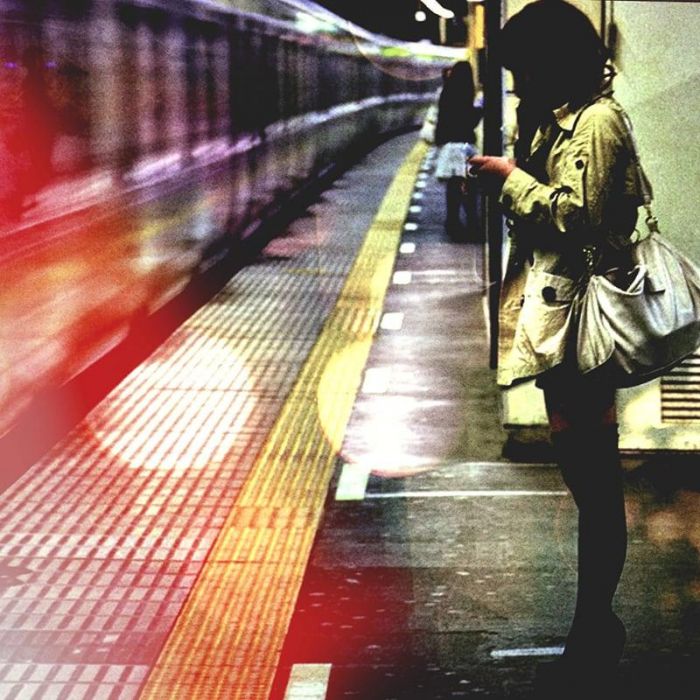L.Y.F by Hong Kong Express (Review)

This past February, Dream Catalogue — arguably one of the most well-known and prolific vaporwave labels out there — announced that they were ceasing operations as a record label, and instead, shifting to being “the central destination for dreampunk music, art, fashion and culture.” (Dreampunk, for what it’s worth, is but one of vaporwave’s many offshoots.)
As part of closing up shop, Dream Catalogue released an album a day for two weeks in mid-February from artists including Kagami Smile, Sangam, Shima33, Yoshimi, and of course, the man who started it all: David Russo, better known as Hong Kong Express. Dream Catalogue called this deluge of releases “one of the best seasonal runs of releases we have ever had,” though one couldn’t help wondering if that was just a fancy way to describe cleaning house before moving on to their next phase.
But in the case of Hong Kong Express’ final Dream Catalogue release, those words ring with truth.
L.Y.F bears little resemblance to what most would probably consider vaporwave. (Check out Black Banshee’s latest release, instead, for some more “traditional” vaporwave.) Instead, Hong Kong Express’ latest has much more in common with Russo’s 2814 collaboration as well as “Speak to Me,” the song that he recorded for the Ghost in the Shell movie trailer back in 2016. In other words, think slow-building, highly atmospheric compositions that have a very cinematic aspect to them as opposed to chopped up and slowed down samples of ’80s city pop and ’90s R&B grooves.
The swirling notes, disembodied vocals, and synth pads on album opener “L.Y.F (Intro)”; the echoing percussion, sparse koto-like melodies, and windswept tones that help “Humid Summer” live up to its name; “When the City Is Dreaming“ ‘s shimmering synths, siren sounds, and conversational snippets — all of these elements, and more, create a haunting, otherworldly listening experience from the moment you press “Play.” It all builds up to the aptly titled “To the Next World,” a majestic-yet-subdued ambient piece that ends L.Y.F on a note that falls somewhere between triumphant and contemplative.
On his website, Russo describes his Hong Kong Express project thusly: “Sadness, romance, the beauty of life, the city lights blurring out in endless rain.” Indeed, L.Y.F’s 9 songs conjure up rainswept cityscapes that are as beguiling and enchanting as they are ominous and dystopic. In that regard, this might be the best Hong Kong Express album that Russo’s released to date. But that aesthetic also results in an album that’s supremely pensive and elegiac — as befitting one that marks the end of an era.
Correction: An earlier version of this review stated that Black Banshee was a David Russo project. This error has been corrected.